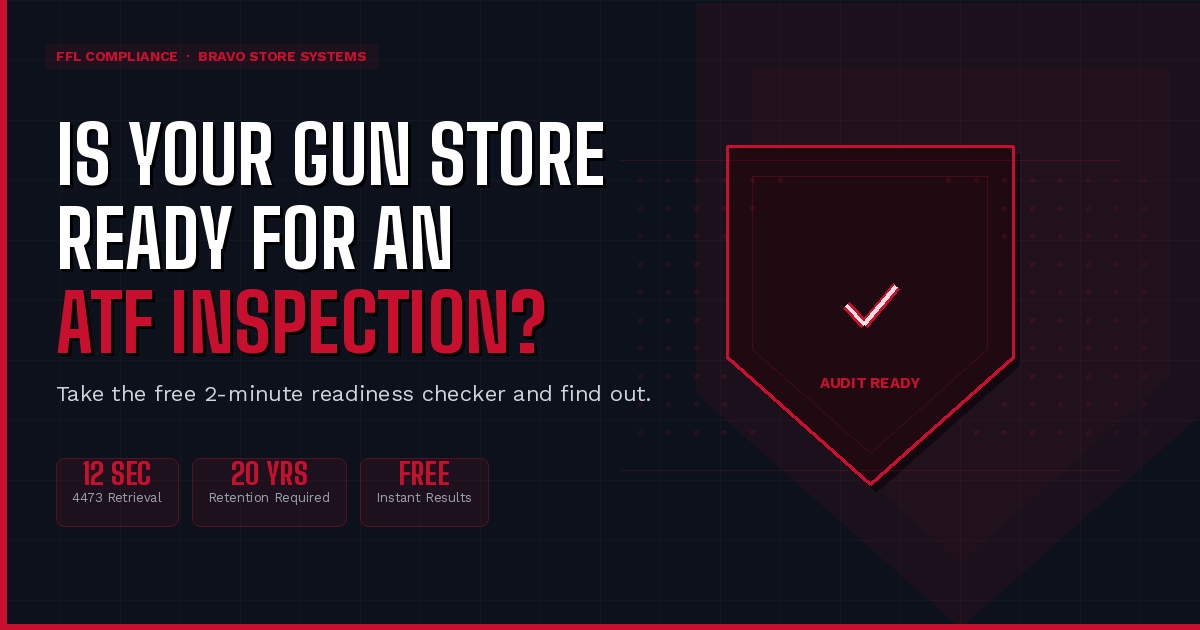What to do When the ATF Comes for an Audit
First and foremost, when the ATF comes for an audit don’t panic. ATF audits are an opportunity to demonstrate compliance. Stay professional, and you’ll navigate the process effectively.
When the ATF (Bureau of Alcohol, Tobacco, Firearms and Explosives) arrives for an audit at your firearms business, it’s essential to be well-prepared and understand the process.
As a Federal Firearms Licensee (FFL), you are subject to unannounced compliance inspections by ATF investigators (Industry Operations Investigators or IOIs). These inspections aim to ensure adherence to federal, state, and local laws governing firearms.
Here are some tips to help your business navigate an ATF audit and what to expect.
- Be Prepared and Organized
- Records: Ensure that your records are meticulously maintained. Keep your bound book (Acquisition & Disposition record) up to date. This book contains details of all firearm transactions, including acquisitions and sales.
- Compliance Procedures: Regularly review and update your compliance procedures. Make sure they align with ATF regulations.
- Security Measures: Verify that your security measures are robust. This includes safeguarding firearms, ammunition, and sensitive documents.
- Initial Interaction:
- When the ATF investigator (Industry Operations Investigator or IOI) arrives, greet them professionally.
- Ask for their credentials and verify their identity. ATF credentials should be prominently displayed.
- Listen carefully as they explain the purpose of the inspection.
- Inspection Activities:
- Business Operations: The IOI will assess your overall business operations. They’ll inquire about ownership, responsible persons, and organizational structure.
- Internal Controls and Security: Expect scrutiny of your internal controls, security systems, and alarm protocols.
- Physical Inventory: The IOI will conduct a thorough physical inventory of firearms. Ensure that your inventory matches your records.
- ATF Forms: They’ll review ATF Form 4473 (Firearm Transaction Record) and other relevant forms.
- Suggestions for Compliance: The IOI may offer suggestions to enhance compliance. Take note of these recommendations.
- Violations and Corrective Actions:
- If any violations are identified, the IOI will discuss them with you.
- Be prepared to address any discrepancies promptly.
- Understand that some violations may be unintentional; focus on corrective actions.
- Cooperate fully during this process.
- Follow-Up and Documentation:
- After the inspection, the IOI will provide a report.
- Review the findings carefully.
- If there are violations, take corrective actions promptly.
- Document your responses and any changes made.
- Legal Consultation:
- If you have legal concerns, consult an attorney.
- Legal advice can help you navigate any potential violations or disputes.
Remember, ATF inspections are routine and essential for maintaining compliance. Stay informed, stay organized, and ensure your business adheres to all regulations. Remember to be cooperative, maintain accurate records, and address any issues promptly. If you have legal concerns, consider consulting an attorney before responding to any findings.









.jpg)








